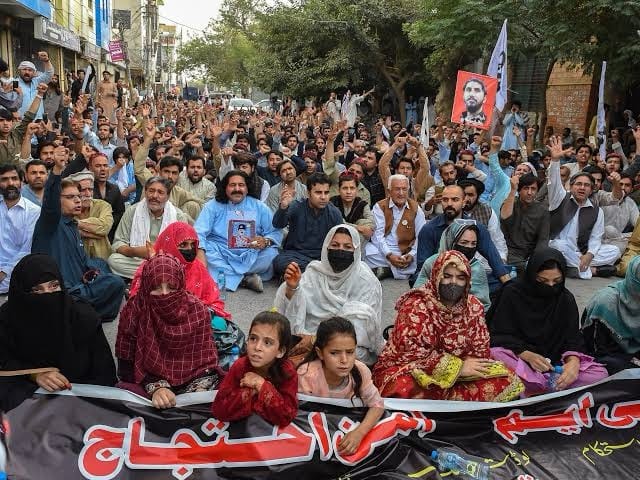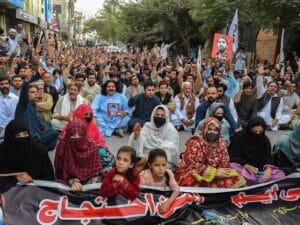Pakistan’s ban on civil rights group risks alienating Pashtun minority
Pakistan’s recent decision to ban the Pashtun Tahafuz Movement (PTM), a prominent civil rights organization advocating for the rights of the country’s estimated 40 million Pashtuns, is drawing widespread criticism and concern from experts.

Pakistan’s recent decision to ban the Pashtun Tahafuz Movement (PTM), a prominent civil rights organization advocating for the rights of the country’s estimated 40 million Pashtuns, is drawing widespread criticism and concern from experts.
The ban, enacted on October 6, designates the PTM as a “proscribed organization,” alleging that it undermines national security amid ongoing tensions in the South Asian nation.
Analysts warn that this move could deepen the rift between the government and the Pashtun minority, exacerbating feelings of alienation and resentment. “It’s going to make Pashtuns much more apprehensive of the state,” said Ayesha Siddiqa, a senior fellow at King’s College London. “There’s going to be greater resentment and frustration.”
Since its emergence in 2018, the PTM has accused the Pakistani military of severe human rights abuses, including extrajudicial killings and enforced disappearances, particularly during counterterrorism operations in Khyber Pakhtunkhwa, a province heavily populated by Pashtuns. The region has been significantly affected by violence, with military operations against the Tehrik-e Taliban Pakistan (TTP) resulting in thousands of civilian casualties and widespread displacement over the last two decades.
Siddiqa describes the ban as a “knee-jerk reaction” by a military that has traditionally dominated Pakistan’s political landscape. “PTM is a political movement, and that is something which the state finds much more difficult to control,” she noted.
The ban has faced backlash from various rights organizations. Amnesty International condemned the move on October 8, calling it “an affront to the rights to freedom of association and peaceful assembly.” The Human Rights Commission of Pakistan also criticized the ban, asserting that the PTM has always operated within the constitutional framework and has never resorted to violence.
Also Read:Japan: Prime Minister demands accountability from China amid rising tensions
In the wake of the ban, tensions have escalated. The PTM reported that over 200 of its members have been arrested ahead of a planned assembly from October 11-13. Recently, clashes between police and PTM supporters in Jamrud led to the use of tear gas and batons, resulting in the deaths of at least four activists.
Despite the ban, the provincial government of Khyber Pakhtunkhwa has allowed the PTM to hold its assembly and indicated plans to advocate for the ban’s revocation. “The PTM has been raising very legitimate demands,” said Farhatullah Babar, a former lawmaker and member of the Pakistan People’s Party. He emphasized that stifling the PTM’s voice would have detrimental effects, stating, “This will alienate people even more. The incentives for them to remain peaceful will now decrease.”
As the situation develops, the potential for increased unrest looms, with experts urging the government to reconsider its stance on the PTM to foster dialogue and support for the Pashtun community.













